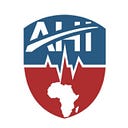Member-only story
Africa Outbreaks: Rwanda HIV outbreak
Written by Ritchie Aseke, a Physician Associate , 12th August 2020
What was the outbreak:
Since the first reported case in 1959 in the Democratic Republic of the Congo [1], by the end of 2019, the Human Immunodeficiency Virus (HIV) had infected over 38.0 million people globally and is responsible for the death of over 690,000 people [2]. More than any other region in the world, countries in Africa have sustained the predominant impact of the global HIV outbreak; in 2001 more than 70% of people living with HIV resided in sub-Saharan Africa, a region which only represents 12% of the global population [3, 4].
HIV is a virus that is transmitted through contact with bodily fluid such as semen, and through blood passed between mother and baby, sharing injecting equipment, and contaminated blood transfusion & organ transplant. HIV survives within the human body by attacking and damaging immune cells responsible for protection against infections. When left untreated, the disease can lead to Acquired Immunodeficiency Syndrome (AIDS); a disease characterised by a significantly depleted immune system which gives way to opportunistic infections that subsequently cause death [7].
The current review will centre Rwanda and its ongoing efforts to combat the HIV outbreak. With a population of 12.3 million, the small landlocked and Central African country is one of the most densely populated countries in Africa ;of which 83% of the population reside in rural areas. In 1983, Rwanda was…
